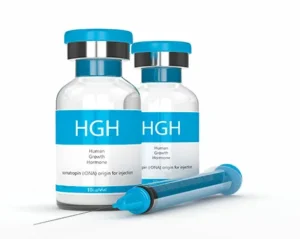By the time your teenager is able to make decisions for him or herself, you’ll have drilled into their head that drugs are a bad idea. Phrases like “Just say no,” or even the slightly more entertaining rhyme, “Crack is whack”, help. Though they all know that drugs are bad and that they shouldn’t use them, you’re worried about the other message coming from the media, movies, music, and general celebrity news, which tend to glorify drug use. If you aren’t or don’t know what the messages are, you should know because it may be the only way to ensure your teenagers make the right decisions when you aren’t with them. If you miss keeping an eye, they can get to the edge that they will need addiction treatment services to get rid of addiction.
On the silver screen, in music videos, and in the lives of many celebrities, the message received is loud and clear: drugs, along with fast cars, bikini-clad women adorned with lots of bling, are part of an envious lifestyle that only the “in crowd” can afford to indulge in.
Many famous musicians cite drugs and alcohol as the inspiration needed to create their chart-topping songs. Some go on the record and admit that their masterpiece wouldn’t exist but for the use of drugs or plenty of booze. If your teen has dreams of being a musician, does he get the idea that in order to produce a hit, he must first take a hit?
Already famous for her hits, “I Will Always Love You,” “I Wanna Dance with Somebody,” and myriad others, the undeniably talented Whitney Houston experienced a resurgence of notoriety after she married Bobby Brown and became out-of-control cocaine and crack user. As with any addict, whether someone you know personally and love deeply, we all rooted for Whitney when she divorced Brown and went into recovery. Appearing to be successful at gaining control over her addictions, she embarked on a comeback. However, as anyone who struggles with addiction knows, it was a long and uphill battle for Whitney. Her life was tragically cut short when she overdosed on the very same drugs that she fought for years to resist.
As fans of this or that celebrity, teenagers have become almost inured to hearing stories about drug use among the A-List crowd. These days it is almost surprising to learn of someone in that world who isn’t indulging. Hearing that someone died from an overdose is no longer a shock, yet seeing a celebrity shunned by the media for drug use is a rarity. A magazine article about a celebrity’s death due to drug overdose may be contextually themed, “Oh isn’t it sad, but still so tragically hip?” This kind of attitude is startlingly common. Although “journalists” have a responsibility to slant the story to ensure the underlying message reminds readers how bad drugs are; instead, they play up the antics and glamour. Why be responsible when it doesn’t sell nearly as many issues?
Parenting is one of the toughest jobs. As the parent of a teenager, despite the inordinately difficult job before you, your responsibility is to speak louder and replace the allure with the reality of drugs. Use the consequences of yet another celebrity as a teachable moment about why drugs are dangerous. Explain to them that after the cameras are turned off, and the paparazzi have gone home, what goes on “behind the scenes,” so to speak. Drugs are anything but glamorous; they are extremely dangerous. Addiction is a one-way ticket to an untimely and unintended death. There’s no glory in a life that has been tragically cut short. Your teenager is smarter than you think. The more you reinforce your message, the more that pop culture’s message loses its grip.




